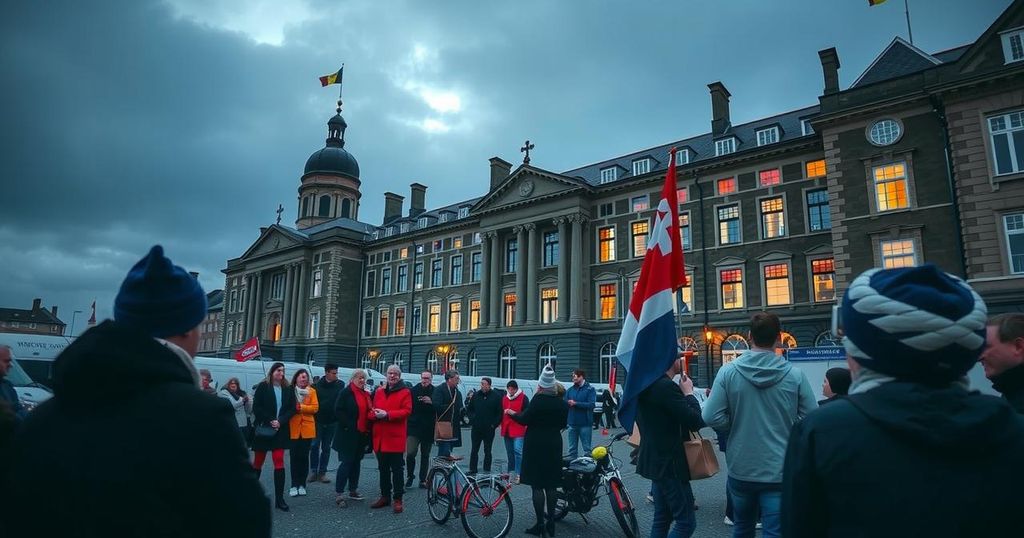World news
AFRICA, ALTHINGI, BEN, BENEDIKTSSON, BJARNI BENEDIKTSSON, BRITAIN, EUROPE, EUROPEAN UNION, GOVERNMENT, HALLA TOMASDOTTIR, ICELAND, INDEPENDENCE PARTY, LEFT - GREEN MOVEMENT, NAMIBIA, NATIONAL ASSEMBLY, NORTH ATLANTIC, PARLIAMENTARY SEATS, POLITICS, POPULISM, PROGRESSIVE PARTY, STAR, UK
Amira Khan
0 Comments
Iceland Holds Crucial Parliamentary Election Amid Challenges and Instability
Icelanders are voting in a parliamentary election prompted by the collapse of a fragile coalition government over economic disagreements. This marks the sixth election since the 2008 financial crisis, and challenges such as rising inflation, refugee influx, and harsh winter weather are complicating the voting process.
Iceland is conducting a parliamentary election following the collapse of its delicate coalition government, primarily due to disputes regarding the economy, immigration, and the aftermath of volcanic eruptions. Prime Minister Bjarni Benediktsson’s coalition, which includes the Independence Party, Progressive Party, and Left-Green Movement, faced significant challenges that led him to request President Halla Tomasdottir to dissolve the Althingi. This election marks Iceland’s sixth general election since the economic crisis in 2008, reflecting ongoing political instability.
As citizens cast their votes for 63 members of the Althingi, they face challenging weather conditions that threaten to disrupt polling processes. The outcome remains uncertain as public sentiment towards the ruling parties has weakened, with inflation and housing shortages continuing to pose significant concerns. Furthermore, Iceland is grappling with increased immigration and economic pressures, which have exacerbated societal tensions and highlighted the urgent need for responsive governance.
The context leading to Iceland’s current parliamentary election stems from a series of political upheavals and economic challenges faced since the 2008 financial crisis. The crisis led to a loss of confidence in traditional political parties, paving the way for the emergence of new political entities, including the Left-Green Alliance and the Pirate Party. Political instability has been compounded by rising inflation and public dissatisfaction regarding the handling of post-eruption recovery efforts and the influx of refugees seeking asylum, all contributing to the current election’s urgency.
The upcoming parliamentary election in Iceland is critical as it may reshape the political landscape amidst a backdrop of economic strife and public discontent. As residents head to the polls under challenging circumstances, their choices will significantly influence the nation’s response to pressing issues such as inflation, housing shortages, and immigration. The election exemplifies the ongoing evolution of Icelandic politics in a post-crisis era, where voter sentiment could lead to further changes in governance.
Original Source: www.aljazeera.com




Post Comment